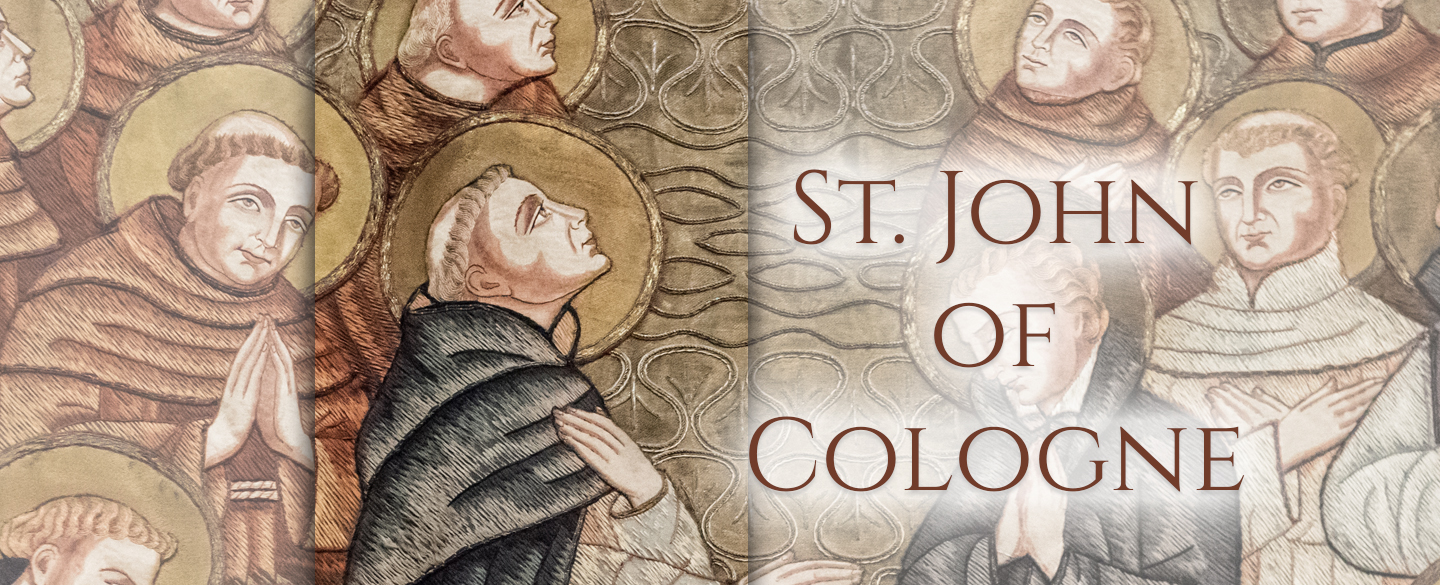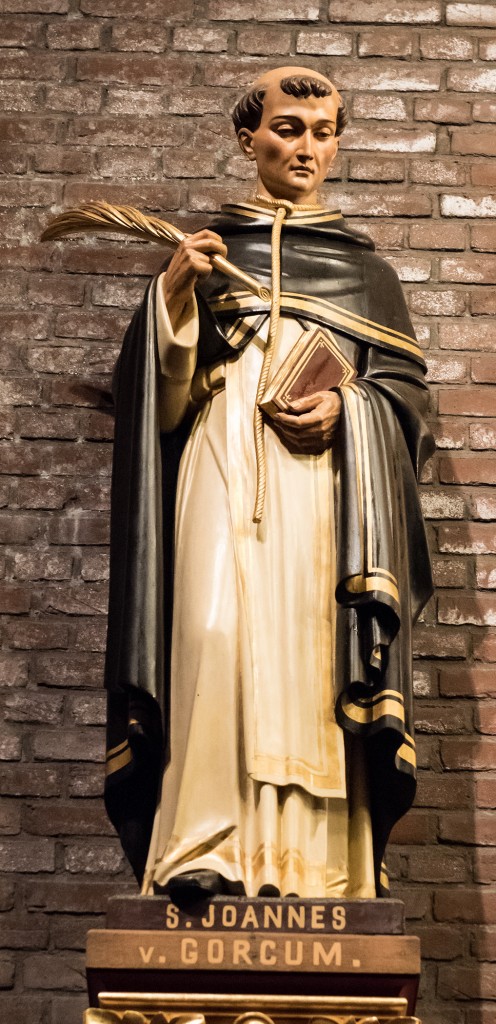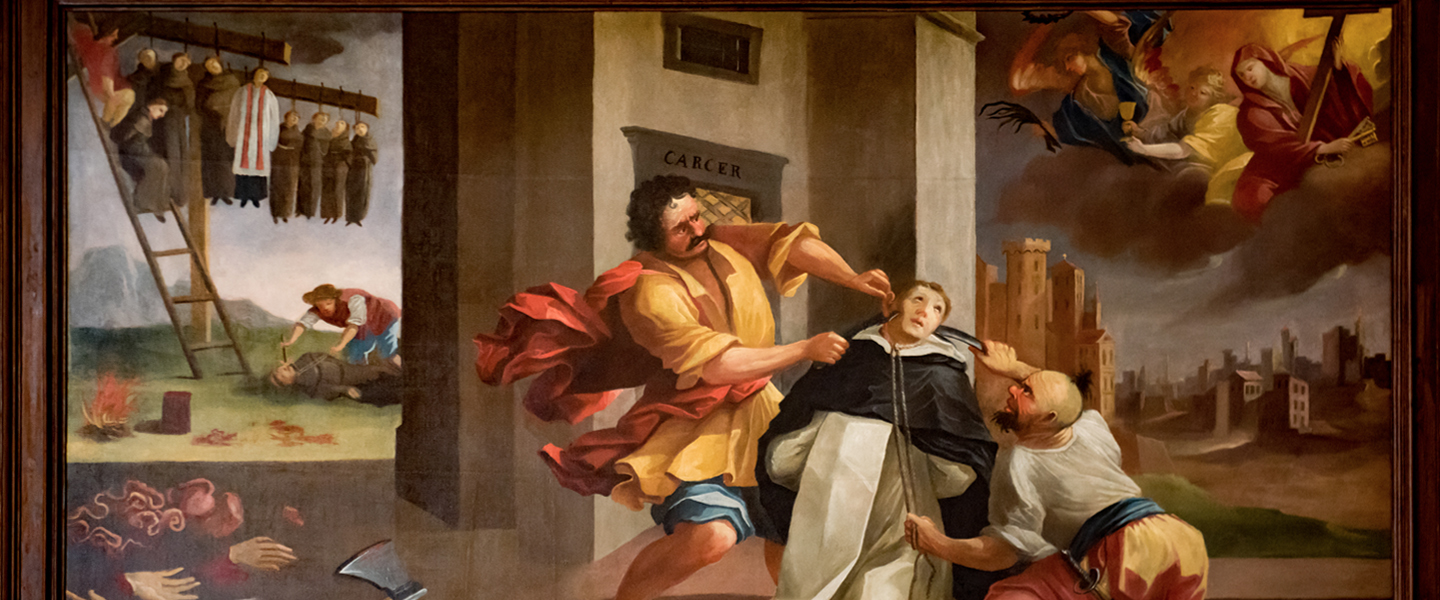
 His Decree of Canonization praised St. John of Cologne as a “great athlete of Christ.” As his title suggests, this Dominican priest is best known for the victory of his martyrdom, but it was his lifelong training in fidelity, lived through the Dominican charism, which prepared him for this final conquest.
His Decree of Canonization praised St. John of Cologne as a “great athlete of Christ.” As his title suggests, this Dominican priest is best known for the victory of his martyrdom, but it was his lifelong training in fidelity, lived through the Dominican charism, which prepared him for this final conquest.
St. John attended the University of Cologne in the middle of the sixteenth century. Although we don’t know much about his early life, we can learn something about it from John’s cultural setting. At this time, western Germany, Belgium, and Holland were dominated by Calvinist teaching, which viewed human nature as completely corrupt and denied the healing action of grace. As a result, even many Catholics had lost a sense of the reality of the sacramental life. Not unlike today, many in John’s age found moral absolutes hard to identify, and faith had become relegated to the private sphere.
Amid these uncertain cultural currents, John discovered the solid foundation of truth when he began his studies at the University of Cologne, then recognized as one of the best educational institutions in Europe. Not only did John acknowledge intellectual truth, but he also came to know the Person of Truth, Jesus Christ, and followed His call to the Dominican Order. He entered the Order at Cologne and received his formation there.
After completing his education, John was assigned to a parish in the Netherlands village of Horner, where he served for twenty years. Although we do not have records of the sermons of John of Cologne, his final actions give the most eloquent testimony about what he considered the purpose of his priestly vocation. In the spring of 1571, a group of militant Calvinists along with a band of pirates began raiding Dutch villages, particularly focusing on the arrest and capture of the Catholic clergy. In June of that year, the neighboring town of Gorkum was attacked, and the clergy were captured. Fifteen priests, the majority of them Franciscans, had been imprisoned.
Upon hearing of their arrest, John immediately disguised himself and sought to bring these priests the consolation of the sacraments. For several days he was successful, but was eventually captured along with three other priests. These nineteen were imprisoned in Gorkum from June 26 until July 6, undergoing much abuse as they were asked to deny the tenets of the Catholic faith.
On July 6, the nineteen martyrs were transferred to the prison at Dortrecht. Along the way, villagers were charged admission for viewing the torture of the priests. Once in Dortecht, each of them was asked to deny belief in the Real Presence of Christ in the Eucharist and in the primacy of the Pope. Each one remained steadfast in his profession of faith. Despite an order from the Dutch ruler William of Orange that the priests not be harmed, they were cruelly mutilated and hanged on the night of July 9, 1572. The Dominican John of Cologne, great athlete of Christ, had won his final victory of martyrdom. Along with his companions, he was beatified on November 14, 1675 and canonized on June 29, 1865.
Feast: July 9


 Back
Back